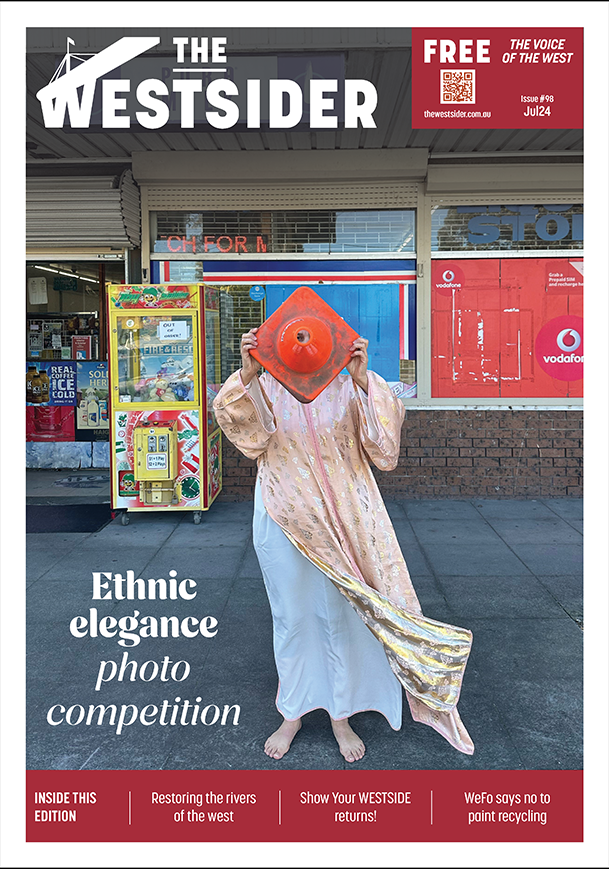I read somewhere new experiences go hand-in-hand with cross-cultural marriage. For me, it was: hot February days bottling stewed tomatoes, Easter and Christmas feasts of lasagna and ‘Giorno di Morti’ cemetery visits to change flowers on ornate marble monuments. But as partner to the daughter of post-war Sicilian immigrants a standout was clear – generous servings of friendship.
Even though my parents-in-law were well into middle-age, it was commonplace for relatives or old friends to drop in. Day or night. A ‘cafetera’ sat on the gas stove ready to be plied with ground coffee and bubble away filling the kitchen with that unmistakable homely aroma. There were times when dinner had long finished when the door-bell would chime – ‘paesano’ trundled in and squeezed around the table to chat over ‘briscola’ card games, staying well past midnight.
I couldn’t follow the Sicilian banter, sometimes so animated, it sounded more like an argument than conversation. But I joined in occasionally by gently enquiring about leaving Italy. Memories spilled over: travelling to Australia on the promise of a job with little or no English; buying a timber home in one of the new housing estates opening up in muddy paddocks; working long hours to get ahead. ‘Sacrifici, sacrifici, sacrifici,’ says my mother in-law of those early years. To this day, tears well up in her eyes.
In ‘A History of Australia’ John Lack describes the fifties, pre-multiculturalism attitude towards the thousands of Europeans who came to make homes west: ‘Migrants were given warm civic welcomes, but it was made clear from the outset that rapid assimilation to “Australian ways” was expected.’
Fat chance. By the time a lounge-room was incomplete without a black-and-white TV, one third of Footscray’s population were born overseas. Lawns had been dug up to plant veggies, olive oil replaced dripping as a kitchen staple and a round ball made as much sense as an oval-shaped Sherrin. It wouldn’t be long before pizza and pasta was the takeaway of choice, and who cared if Footscray was named after an English village in Kent?
My in-laws copped their fair share of the push-back. Taunts directed at ‘New Australians’ weren’t always in jest: ‘By the mid-1950s the papers frequently carried reports of Australian violence against lone male migrants. Animosities took the form of pitched battles between street gangs.’
The family say it’s their Italian nature… tradition, but I’ve always wondered whether Southern European hospitality can be put down, at least in part, to the closeness of outsiders in a strange land. Migrants from all over Europe were prolific social club builders throughout Melbourne. Clubs have grown into large reception and entertainment centres. My in-laws’ social club, named after their Sicilian hometown, was more modest, but dances, dinners and cherry-picking excursions still go on.
Sadly, my first visit to St Augustine’s in Yarraville on a bitterly cold winter day was to mark the passing of the man largely responsible for keeping the club going for the last 30 years.
Twenty minutes passed before a long procession of mourners had paid their respects to the immediate family when relatives and friends caught up, greeting one another with a kiss on both cheeks. I was standing close-by as cousins kept apart by a feud between two warring Sicilian mothers embraced in a hug that could’ve lasted forever. ‘We’re turning you into a wog,’ said my uncle in-law, smiling as his hand reached out to shake mine: I couldn’t even think that, let alone say it, but his good-natured generosity had me feeling as if I belonged.
Please, whatever is remembered about Southern Italian migration … can kinship and family go before arancini.
Italian funerals weren’t new to me. I expected the traditional mass would be long, and to be occasionally unnerved by howls of grief. My heart broke as an elderly woman cloaked in black stood up during the service. Wailing, she strode from the pew, wrapping her arms around her son’s polished wooden coffin as if she were holding his body.
But there was another sadness. Looking around the church at lined faces and hunched bodies, it was clear a generation who’d forged the close-knit community my wife grew up in was disappearing. And with it a chapter in local history. I only had to remind myself how St Augustine’s congregation changed after World War Two. Before it was said of the town, ‘The Greeks, they own Yarraville now’, Catholic masses were being offered in Polish and Croatian. Among visitors to the church were Mother Theresa and Polish-born Cardinal Wojtyla in the seventies, who would later become Saint Pope John Paul II.
Our inner west’s sought-after postcode, named after the Yarra probably to distinguish it from Footscray on the Saltwater River, has always felt like a village. So it doesn’t figure that calling the shopping centre ‘Yarraville Village’ was a shout-out to post-war migrants. Still, on a weekend, as I saunter to shops in streets unfriendly to cars, take in a coffee at one of the overflowing cafe’s or watch free-wheeling children play outside the Sun Cinema, it’s hard not to romanticise about life once lived in a Southern European village.
WESTPECTIVE: Peter has always lived here. Writing about the west has opened his eyes to its many heroes.

